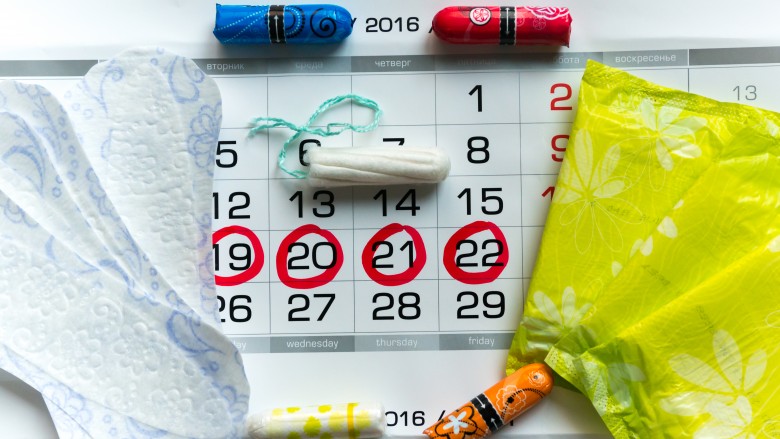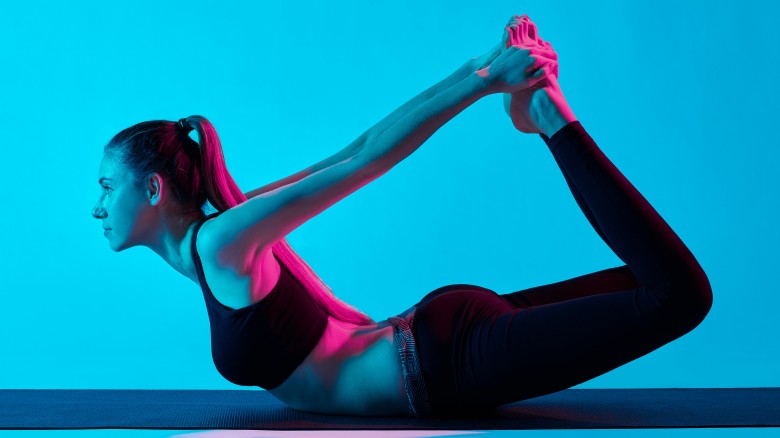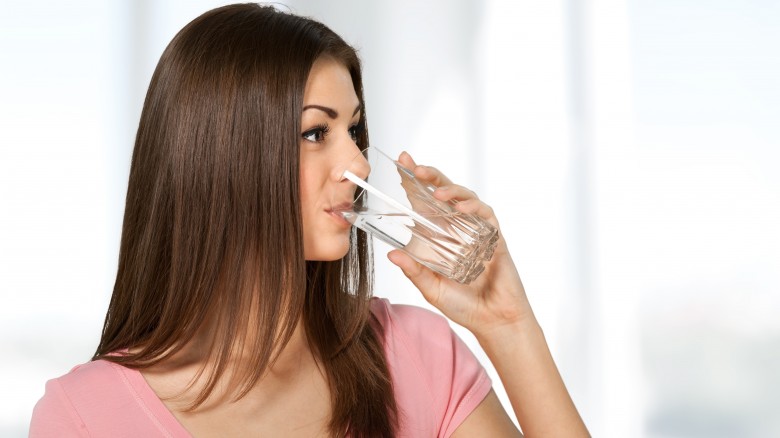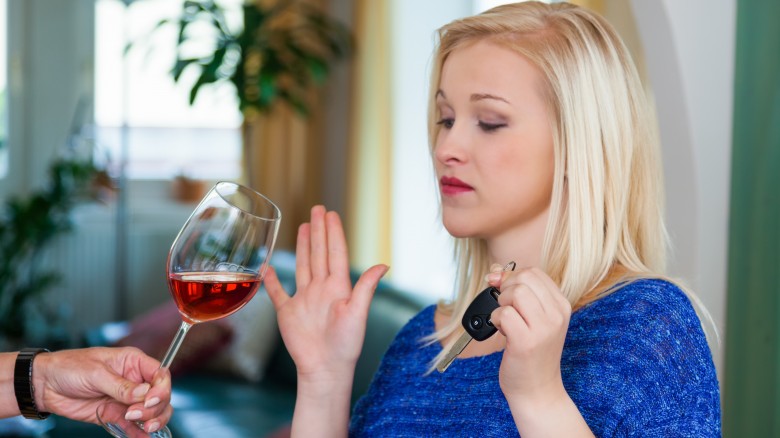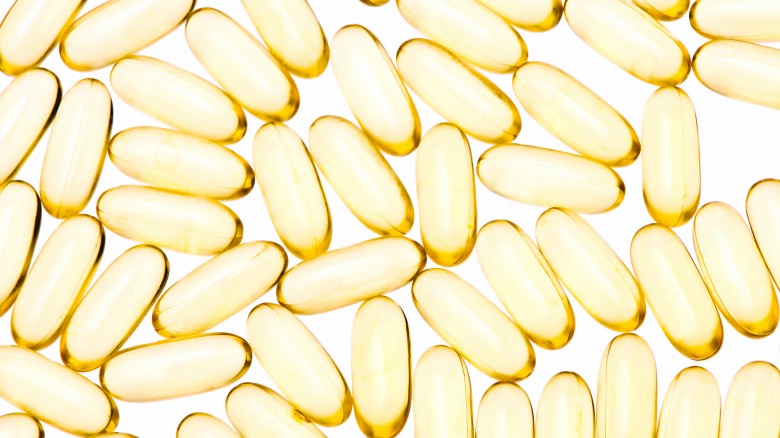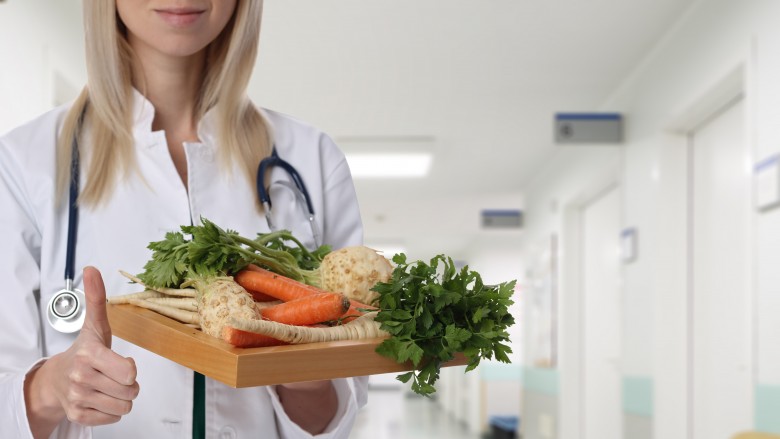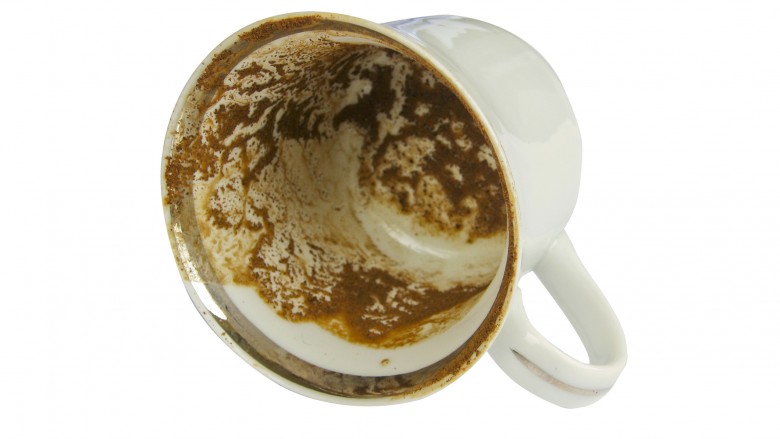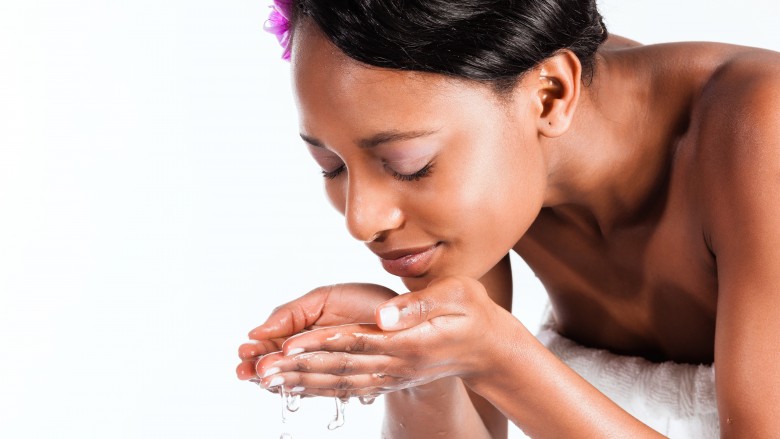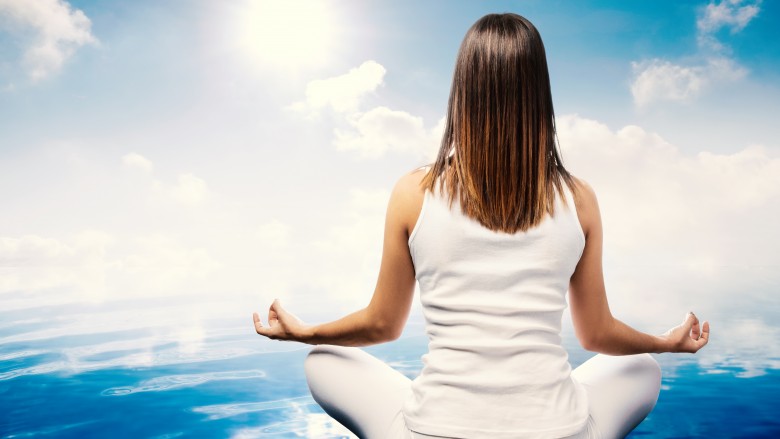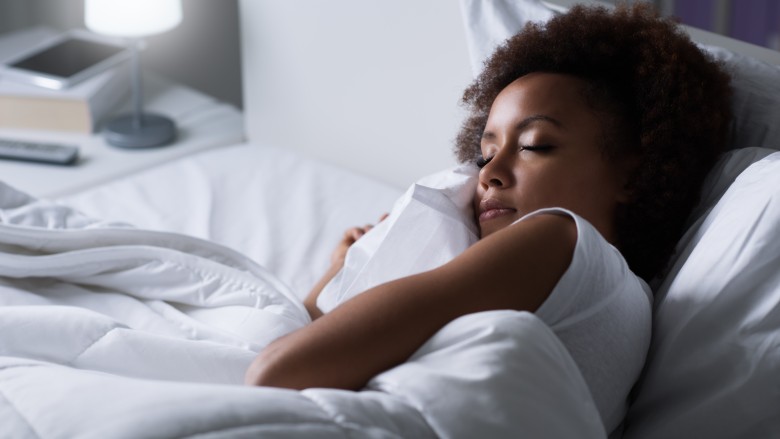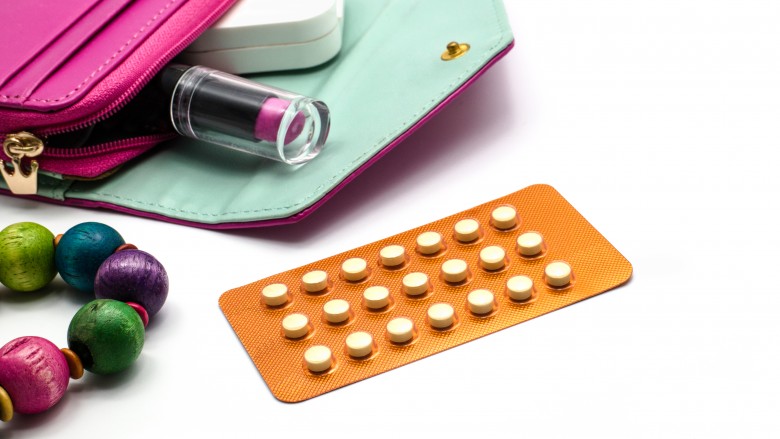Hacks For Surviving PMS
PMS stands for "premenstrual syndrome," but it may as well mean "pretty much sucks." You're cranky, you're crampy, your face is an oil slick, and all you want to do is hide under a blanket and eat an entire sleeve of Thin Mints. It isn't fun, but it doesn't have to be unbearable. In fact, the first step to dealing with PMS is acknowledging that it's not all in your head.
"We're conditioned to think PMS is in our mind or that we're neurotic," Dr. Donnica L. Moore explained to Health Central. "But the fact is, women's hormones (estrogen and progesterone) fluctuate in a cyclical fashion — and we do react to those changes."
It's how we react to those changes that can make PMS go from excruciating to "eh, not so bad." Here are a few tricks to keep yourself sane... and to keep jerks from asking, "Is it that time of the month?"
Keep a log of your symptoms
Keep a journal of your PMS symptoms for at least three months. Log your mood swings, any aches and pains, food cravings, breast tenderness, breakouts, cramps, fatigue, bloating — the good, the bad, the ugly, everything — as well as when they happen and when and how you start to feel better. This can help you, over time, determine whether your symptoms are actually PMS-related, or if you're suffering from another condition, like PMDD (a severe form of PMS that affects some women), depression, bi-polar disorder, or a hormonal imbalance. This step is especially important, because Health Central reports that there are more than 150 symptoms that can be attributed to PMS, but can also be attributed to a host of other things as well.
Break a sweat
Cramps and fatigue from PMS can make you want to curl up in a ball on your couch and not move at all... but a good cramp remedy and natural energizer is actually to get up and get moving. Everyday Health reports that aerobic exercise, especially swimming, dancing, jogging, or even a brisk walk, can alleviate menstrual aches and pains, as well as help you de-stress. Stretching and yoga can also help alleviate cramps, soreness, and muscle aches associated with PMS in addition to helping you relax.
Stay hydrated
When you're retaining water, the last thing you probably want to do is guzzle more of it, right? Think again. Gynecologist Donnica L. Moore told Everyday Health, "Most women tend to cut back on liquids because they feel bloated, but increasing your water intake will actually help flush out your system more quickly." It seems counter-intuitive, but part of why your body retains water is because it may need more of it. Bonus? It can help keep your skin clear of PMS-related breakouts, especially near your chin, where they're likely to pop up around this time.
Cut out booze
Being this miserable and achy may make you want to reach for a margarita to ease the pain. Don't do it! The New York Times reports that alcohol can worsen PMS symptoms and may even increase the risk for prolonged cramping before and during your period. In addition, alcohol dehydrates you, which can lead tomore bloating and overall soreness. Plus, isn't this time of the month crappy enough without a hangover to boot? Consider this your week to be your pals' designated driver if you go out.
Quit smoking
Let's be real: There's absolutely no reason you should be smoking at all. You already know it's probably going to give you lung cancer, high blood pressure, emphysema, COPD, and a host of other problems, so we won't even delve into that aspect too deeply. But know that it can also make your PMS longer-lasting and worse.
"Studies suggest that smoking may alter levels of estrogen, progesterone, testosterone, and other hormones, many of which may be involved in the development of PMS," Dr. Elizabeth Bertone-Johnson told Reuters Health. "Some studies have found that smokers have shorter and more irregular menstrual cycles than non-smokers. Smoking may also lower levels of vitamin D in the body, which also may increase a woman's risk of developing PMS... Our findings lend further support to the idea that smoking increases the risk of moderate to severe PMS, and provides another reason for women, especially adolescents and young women, not to smoke."
Take vitamins
Gynecologist Rebecca Kolp recommends supplements to patients struggling to deal with PMS symptoms, especially vitamin D and calcium. Vitamin E and omega-3s (like from fish oil supplements) may also be linked to reduced period pain and discomfort.
Change up your diet
This one is a toughie, because PMS makes a lot of us just want to eat a super-sized fries, followed by an entire box of Oreos for dessert. Don't fall into the trap! Giving in to cravings won't make them go away, and junk food may actually make your PMS symptoms worse. Eating a ton of salt (like from the Doritos you binged on to make the pain go away) will make you retain water and bloat, while sugar can mess with your brain's serotonin levels, causing your mood swings to be even more dramatic than they'd be otherwise.
Experts recommend that if you're craving sugar to level out your serotonin, opt for whole grains instead. To avoid too much salt intake, choose whole foods over anything processed or in a package. Calcium-rich snacks like yogurt and vitamin B-fortified foods, like cereals and breads, can ease PMS symptoms. Fiber-rich foods, like oatmeal, can help with digestive issues that PMS and your period may bring. And, yes, as much as you're sick of hearing it, colorful fruits and vegetables will make you feel better — even though you may wish your broccoli was actually a bacon-wrapped corn dog.
Curb your caffeine intake
For some women, caffeine can exacerbate PMS symptoms, including breast tenderness and bloating, in which case you'd want to scale back. This is especially true if you're prone to mood swings: Too much caffeine restricts your blood vessels, which can lead to tension and anxiety, and increases cortisol, a stress hormone that can elevate your heart rate and blood pressure. What's more, caffeine may contribute to shortened or irregular cycles, as well as digestive issues. Opt for decaf, or, even better, just drink water.
Pamper your skin
Beyond just guzzling water, there are other steps to take to prevent pre-menstrual breakouts. "Menstrual-related acne is not a matter of hygiene; it is an internal effect," Dr. Elizabeth Gustrecht Lyster told WebMD. "However, women still need to take special care of their skin around their periods in order not to make things worse."
How? Avoid touching your face, use a lighter moisturizer and a medicated cleanser (salicylic acid works well), and keep your cell phone clean (it's a hotbed of bacteria!). If your pre-menstrual acne is cystic or extra stubborn, you may want to discuss prescription options with a dermatologist, whether it be Accutane, an antibiotic, or a topical medication.
Find your happy place
Reducing stress will make you feel better inside and out. Deep breathing, meditation, massage, yoga, journaling, or even just a girls' night out can make you feel a lot better physically and emotionally during PMS. Whether it's painting, singing, a hot bath, a good book, or kickboxing that gets you centered, do what feels good.
Rest up
Let's face it, everything feels worse when you're exhausted, and it's common to have trouble sleeping when you have PMS. The National Sleep Foundation recommends taking a hot shower or bath before bed, then keeping your bedroom between 60 to 67 degrees to offset the rise in body temperature that this part of your cycle can bring, which will help you fall asleep faster and stay asleep longer. A body pillow can help you feel cozy and comfy, while sleeping on your back or side can minimize discomfort in tender areas, like your lower abdomen and breasts, during PMS.
Go on the pill
Birth control can regulate your period and often make it shorter, lighter, and much more bearable, and with some pills, you won't have to worry about getting your period at all. The predictability birth control brings can make PMS symptoms as a whole much easier to cope with and even eliminate many of them in some cases. Talk to your doctor about your options, and be sure to mention any other medications you may be taking that can interfere with the pill. You may have test-run a few different brands and formulations before you find one that you like, but don't get discouraged! Chances are you'll find one that works for you.

